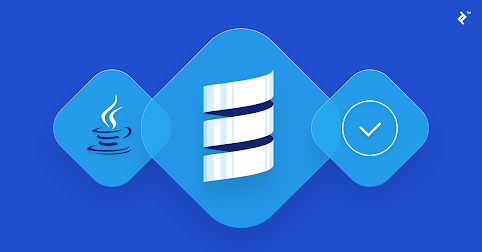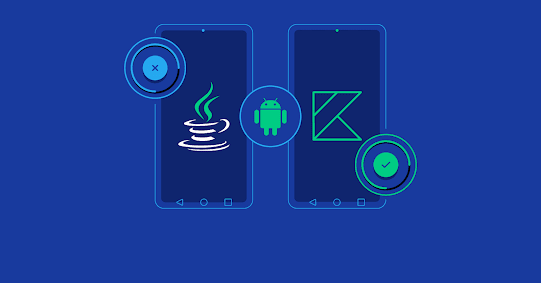Hello guys, what is difference between Java, kotlin, and Scala is a common question from Java developers and new programmers who are learning these programming language for backend development. As a Java programmer and blogger, who has also worked extensively with Kotlin, I've often been asked about the differences between these two languages and how they compare to Java. While Java remains one of the most popular programming languages in use today, both Kotlin and Scala have gained significant traction in recent years, particularly in the realm of modern web development and microservices.
In this article, I'll take a closer look at the similarities and differences between these three languages, focusing on their respective strengths and weaknesses and the specific use cases where each one excels.
Whether you're a Java developer looking to explore new languages or a newcomer to the field trying to choose the best language to learn, this article will provide you with a comprehensive overview of the key differences between Java, Kotlin, and Scala.
Differences between Scala, Kotlin, and Java Programming languages?
Ladies and Gentlemen, welcome to the programming version of the age-old debate of Coke vs Pepsi vs RC Cola. But instead of fizzy drinks, we'll be comparing three of the most popular programming languages - Scala, Kotlin, and Java. If you're feeling a little confused about which language to pick for your next project, buckle up, because this article is going to take you on a wild ride!
Let's
start by introducing the players in the game. Java, the OG of the
programming world, has been around since 1995 and has been the go-to
language for building enterprise applications.
Kotlin, the new kid on
the block, was introduced in 2011 and has been steadily gaining
popularity due to its compatibility with Java and its modern features.
Scala, on the other hand, is a functional programming language that has
been around since 2003 and is widely used for building scalable and
complex applications.
So, what's the deal?
Which one should you pick for your next project? Well, before we jump
into the nitty-gritty details, let's put on our funny hats and have a
good laugh.
1. Compilation Time
Have
you ever heard the saying, "time is money"? Well, that applies to
programming too! If you're using Java, you'll find yourself tapping your
foot and staring at the screen as the compiler slowly churns out your
code.
On the other hand, if you're using Scala, be prepared to invest in
a cup of coffee, a bagel, and a good book to pass the time. But if
you're using Kotlin, you'll be done before you can even finish your
coffee. So, when it comes to compilation time, Kotlin wins hands down.
2. Syntax
Java
has a syntax that's about as simple as a bowl of spaghetti. Sure, it's
easy to understand, but try untangling it when you have a massive
project on your hands. Scala, on the other hand, has a syntax that's
about as complex as a Rubik's cube.
You'll need to be a genius to figure
it out. But Kotlin, well, it's like a bowl of perfectly cooked ramen
noodles. It's just the right balance of simplicity and complexity. So,
when it comes to syntax, Kotlin takes the cake.
3. Interoperability
One
of the biggest selling points of Kotlin is its compatibility with Java.
This means that if you have an existing Java project, you can easily
integrate Kotlin into it. On the other hand, Scala and Java don't play
well together, and you'll have to jump through a lot of hoops to make
them work together. So, when it comes to interoperability, Kotlin is the
clear winner.
4. Performance
When
it comes to performance, Java is like a Honda Civic - reliable and gets
the job done. Scala, on the other hand, is like a Lamborghini - fast
and flashy, but not always practical. And Kotlin, well, it's like a
Tesla - fast, efficient, and environmentally friendly.
So, when it comes
to performance, it really depends on your use case. If you need
something that's fast and efficient, go with Kotlin. If you need
something that's reliable and practical, go with Java. And if you want
to show off to your friends, go with Scala.
Frequently Asked Questions about Java, Kotlin, and Scala
Here are few questions about Java, Kotlin and Scala which will help you to understand them better:Q: What's the main difference between Scala and Java?
A:
Scala is a functional programming language, while Java is an
object-oriented programming language. Scala is also statically typed,
while Java is dynamically typed. This means that in Scala, you have to
declare the data type of your variables, while in Java, the data type is
inferred at runtime. Scala also has more advanced features, such as
lambda expressions and tail call optimization, while Java focuses more
on simplicity and ease of use.
Q: What's the main difference between Kotlin and Java?
A:
Kotlin is more concise and modern than Java, with features such as null
safety, extension functions, and type inference. It's also more
expressive, meaning that you can write less code to accomplish the same
tasks. Kotlin is also more efficient, as it's designed to work
seamlessly with Java, and can make use of Java libraries and tools.
Q: What's the main difference between Scala and Kotlin?
A:
Scala is a functional programming language that is more complex and
powerful than Kotlin. It has a more expressive syntax, and is
well-suited for building complex and scalable applications. Kotlin, on
the other hand, is a modern programming language that focuses on
simplicity and ease of use. It's designed to be more accessible and
easier to learn than Scala, and is a great choice for building small to
medium-sized applications.
Q: What type of projects are best suited for Scala?
A:
Scala is well-suited for building large, complex, and scalable
applications. It's commonly used in big data, distributed systems, and
data processing. If you're building an application that requires
advanced features, such as parallel processing and distributed
computing, then Scala may be the best choice for you.
Q: What type of projects are best suited for Kotlin?
A:
Kotlin is well-suited for building small to medium-sized applications.
It's commonly used in Android development, as it's fully compatible with
Java and Android libraries. Kotlin is also a great choice for web
development, as it has a compact and expressive syntax, and can be
easily integrated with popular web frameworks.
Q: What type of projects are best suited for Java?
A:
Java is well-suited for building enterprise applications. It's commonly
used in large organizations, as it's well-established, widely used, and
has a large community of developers. Java is also well-suited for
building web applications, as it has a large number of libraries and
frameworks available for use.
Conclusion
In conclusion, the differences between Scala, Kotlin, and Java are like the differences between Coke, Pepsi, and RC Cola. Each one has its own unique flavor, and it all comes down to personal preference. But if you want my opinion, while I love Java most, I would say that Kotlin is the clear winner.It has a great balance of simplicity, power, and complexity, it's compatible with Java, and it's fast and efficient. But at the end of the day, the choice is yours. Just remember, the most important thing is to have fun and enjoy the coding process!
So, there you have it folks! The differences between Scala, Kotlin, and Java explained in a funny and casual way. We hope this article has helped you make a decision on which language to choose for your next project. And if you're still confused, just remember, as long as you're coding and having a good time, you're doing it right! Happy coding!
So, there you have it folks! The differences between Scala, Kotlin, and Java explained in a funny and casual way. We hope this article has helped you make a decision on which language to choose for your next project. And if you're still confused, just remember, as long as you're coding and having a good time, you're doing it right! Happy coding!



No comments:
Post a Comment
Feel free to comment, ask questions if you have any doubt.